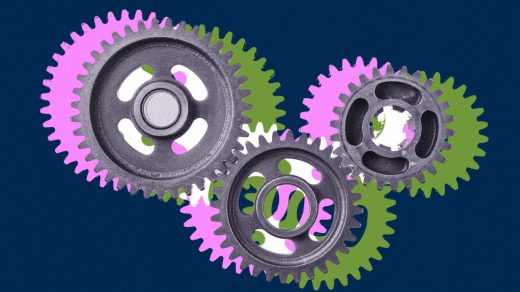ChatGPT has an IQ of 83, yet it’s coming for our jobs. What does that say about the work we do?
By Erol Toker
Technological advancement often exposes the weaknesses of an existing system.
For instance, Facebook exposed how our brains crave, and can be addicted to, the passive consumption of information. It also exposed how our education system often fails to teach critical independent thinking.
Now, generative AI, often referred to as ChatGPT, is revealing how our modern workplace often makes it impossible to live up to our full potential.
Sergey Ivanov, an AI researcher and senior applied scientist for Amazon Web Services determined that ChatGPT has an IQ of 83. If ChatGPT were a human, this would be considered a modest IQ score. Yet many fear that this below average IQ bot will come for our jobs. The pertinent question here is: What does that mean about the jobs we’ve created?
So many of us work demanding jobs that eat into our personal lives. As a result, many of us feel that our jobs define who we are and that if anything that threatens our job, we are replaceable.
It is very likely that many of us will see some of our work replaced by AI, and that hurts. But it says absolutely nothing about the people working those jobs and whether or not they’re skilled. It says everything, however, about our current system and about how inadequate many of the jobs that we’ve created are.
If something with an IQ of 83 can take over our jobs, society as a whole is not operating at its full potential. I believe that generative AI is both a jolting reality check, and a potential solution to help make our jobs more meaningful.
ChatGPT can help minimize busy work
Many workers are drowned in menial, repetitive tasks, often carried out on autopilot and without much critical thinking. Researchers estimate that on average, small and medium sized enterprises (SMEs) spend 120 days and $50,000 a year on administrative tasks, which represents hundreds of millions of dollars for a country like the United States.
This kind of repetitive busy work takes up time that could be spent doing more meaningful work such as fleshing out that new idea you’ve had in the back of your head for months, or exploring an app you think could streamline your projects.
As a result, we often stifle our own progress because we’re starved of the time and resources to think big.
A lot of repetitive work could eventually be replaced by a ChatGPT bot, and I believe that this could be a good thing. Wouldn’t we all rather use bots to free up our time? When we task ChatGPT with writing a blog post, or generating a specific design or line of code, we’re getting more than just our time back. We’re allowed to think again.
ChatGPT can’t replace human ideas
Next, we should consider what AI can’t do right now. For one, it can’t solve a customers’ problems in a substantive, sustainable, nor scalable way. Humans are still needed to address these kinds of issues. But by using generative AI, customer service teams can work more efficiently.
Here’s another example: I’m currently using ChatGPT to write a book. I know how to write, but it also takes a lot of focus that, right now, I can’t give it. ChatGPT allows me to put some bullet points together on my phone during my coffee break. I can offload the ideas that have been stirring in my head and know I don’t have to give them any more thought until later. Once I see those ideas in writing, I can better understand if the thought I had was actually consistent, which is helpful. But even if the ideas are any good, I still have to rewrite half of ChatGPT’s draft. That’s where my high-level human thinking is still valuable.
In this way, ChatGPT helped me jump ahead to the work that can not be automated. This not only saved me hours of grief, it was crucial to helping me finish my work. I genuinely may never have gotten to writing those chapters if ChatGPT hadn’t done a lot of the heavy lifting.
Admittedly, ChatGPT is not giving me human-level quality writing—it’s IQ isn’t high enough for that. Nor can it speak the language of my core audience, whose conversations evolve far more quickly than GPT-3’s training dataset. But it’s allowing me to experiment, give impulse to ideas that might have died, and tease out a problem in minutes, not days. Because of it, I will be able to introduce ideas to the world that will hopefully bring value to someone else.
Generative AI can help us build more fulfilling and productive careers. By giving us the time and tools we need to craft consequential ideas, generative AI can enable us to become masters of our trade.
Erol Toker is the founder and CEO of Truly, a hyperautomation platform built for revenue teams.
(18)



